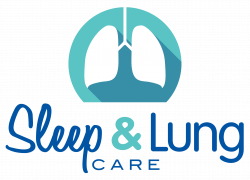What is narcolepsy?
Narcolepsy is a brain disorder that makes you feel sleepy most of the time. People with narcolepsy sometimes fall asleep suddenly, even when they don’t expect to. They can even fall asleep while they are in the middle of activities, such as eating, talking, or driving. People usually develop narcolepsy during their teens or early 20s. Some people get it earlier and others later. Once it starts, the disorder can make it hard to work, do schoolwork, or do other normal activities.What are the symptoms of narcolepsy?
The symptoms can include:- Feeling sleepy during the day
- Falling asleep suddenly, often at inappropriate times – Some people call these “sleep attacks.”
- Suddenly falling, going limp, or feeling weak, especially when excited, angry, or laughing – The medical term for this is “cataplexy.”
- Being unable to move or speak in the few moments right after waking or just before falling asleep
- Seeing, feeling, or hearing things that are not there in the few moments before falling asleep or right after waking up – This can be scary and feel very real.
Should I see a doctor?
Yes, if you have symptoms of narcolepsy, see your doctor or nurse. The symptoms can be dangerous if they happen while you are driving or doing something that could lead to a fall or injury. You should also talk to your doctor or nurse if you think you might have depression or anxiety. There are treatments that can help.Will I need tests?
Yes. If your doctor or nurse suspects you have narcolepsy, he or she might send you for a “sleep study.” For the study, you go to a sleep lab where you are hooked up to different machines that monitor your heart rate, breathing, brain activity, and other body functions while you sleep at night. Several hours after the sleep study is done, another test is done in which the lights are dimmed, and you are given privacy and asked to try napping several times. People with narcolepsy have abnormal sleep patterns during naps and at night. These abnormal patterns can be detected during the studies.How is narcolepsy treated?
Narcolepsy is usually treated with behaviour changes. People with the disorder should:- Avoid medicines that can make people sleepy, such as some allergy medicines
- Take naps just before important events and at scheduled times during the day
- Keep a regular sleep schedule
- Make sure they get enough sleep at night
Is there anything I can do on my own to deal with narcolepsy?
If you have narcolepsy, think about seeing a counselor and try to find support at work or school. This condition can make you feel sad, frustrated, and embarrassed. Plus, other people who do not understand the condition can sometimes treat you like you are lazy or accuse you of avoiding things. All of this can be hard to deal with, so it can help to have someone to talk to.CONTACT US TODAY
If you have any questions or would like to make an appointment to discuss your Sleep or Lung related problem, please fill out the form and submit.
